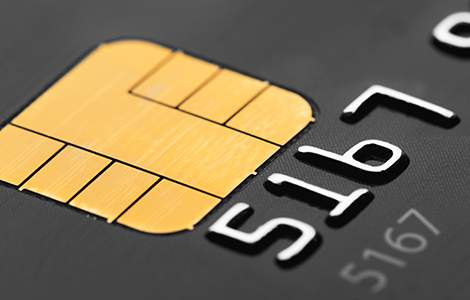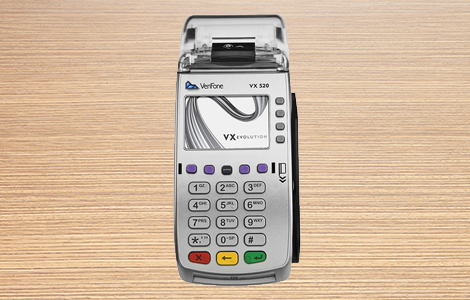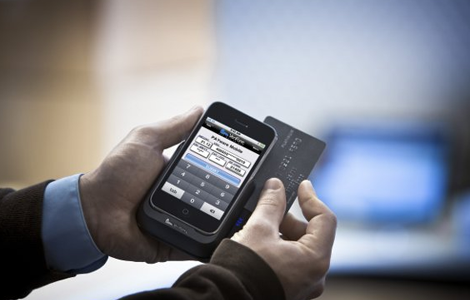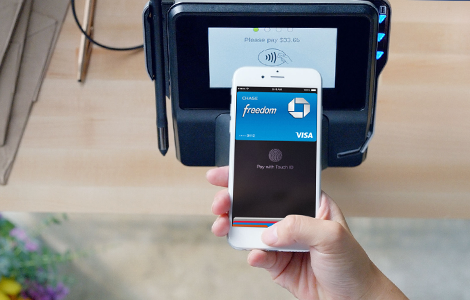Credit and Debit Card Processing | Merchant Services

Credit, Check and Debit cards have taken over as the preferred method of payment by consumers. These transactions make up around 65% of the payments taken nationwide.
At Transaction One, we believe in making payment processing easy for our merchants. We will assist you in understanding the process and making sure that your business accepts payments as efficiently and effectively as possible.
We can accommodate payment processing for any size business. From the small retailer or restaurant, lodging, national chains, internet stores, along with any other business type that accepts credit cards as payments.
Merchant Services is our specialty. We examine each merchant’s specific needs to help customize a package that will help them increase profitability, streamline processing methods while getting the level of service that their business deserves.
We believe that establishing a relationship with our merchants is the key to success. That is why we have dedicated staff members that are available 24×7, to assist with any questions or concerns that you may have. When you call Transaction One, you will always get a live person. No recordings.
Merchant Advanced Funding

A merchant cash advance (a.k.a. business cash advance) is a great option for small business owners, we offer completely unsecured cash advances up to $500,000! A merchant cash advance has many benefits if compared with a small business loan. We help you capitalize your proven business case that’s why we lend cash based on your future credit card sales.
We advance your business funds against future credit card batches. A mutually agreed-upon percentage is taken of the daily credit card deposits until the full repayment of the advance.
Amount of advance can vary from $2,500-$500,000 and is based on the last 4 months of Visa/MasterCard statements. (Maximum advance is 125% of credit card processing volume).
The terms of the advance are not fixed due to the fact that it is based on your processing volume.
The merchant may go online for daily balances and the month’s activity.
Gift Card and Loyalty Programs

Paper Certificates are a thing of the past. Today consumers want to be modern with their gifts. Since gift cards are processing electronically like credit cards, they are easier to track, reusable and more versatile. There is also the loyalty aspect. This allows you to reward your customers with dollar credit on their cards, discounts or rewards towards their future purchases.
Gift and loyalty cards boost cash flow, consumer spending and repeat visits. Gift cards generate sales at the time of purchase and when redeemed. With most consumers spending over their initial card balance, you can enjoy the additional profit and increased sales. Loyalty cards drive repeat business by creating incentives for shoppers. Use gift and loyalty cards to promote new products, new locations, special events and sales.
Check Processing/Conversion and ACH Services

The checking account still remains as a favored method of payment for many consumers and businesses. Enabling merchants to accept and process checks electronically in a face to face or consumer not present environment, safely and securely. We offer solutions for merchants that are accepting paper checks or need to electronically ACH debit a checking account. See our programs offered listed below.
Additional Card Types
EBT (Electronic Benefits Transfer) Card Processing

EBT is the delivery of government benefit funds via an electronic debit card. As more of our society utilizes government sponsored programs, EBT is a payment option that is growing at a tremendous rate. Government programs such as Social Security, state issued food stamps, Women/Infants/Children (WIC) and Temporary Assistance to Needy Families (TANF), issue benefits on an electronic card known as an EBT card.
The transactions are processed like a debit card. The Cardholder enters a Personal Identification Number (PIN) into a pin-pad and once the purchase is approved, there is no liability towards the merchant for accepting Food Stamps or Public Assistance transactions.
Fleet Cards (Wright Express & Voyager)

The WEX (Wright Express) and Voyager cards are among the most popular fleet cards on the market, and used by more than 4 million commercial and government fleet drivers who enjoy the convenience and flexibility they offer. Acceptance of fleet cards is almost a necessity for any gas station, convenience store or repair shop.
EMV – (Europay, MasterCard and Visa)

EMV- which stands for Europay, MasterCard and Visa — is a global standard for cards equipped with computer chips and the technology used to authenticate chip-card transactions. In the wake of numerous large-scale data breaches and increasing rates of counterfeit card fraud, U.S. card issuers are migrating to this new technology to protect consumers and reduce the costs of fraud.
Why are EMV cards more secure than traditional cards?
It’s that small, metallic square you’ll see on new cards. That’s a computer chip, and it’s what sets apart the new generation of cards.
The magnetic stripes on traditional credit and debit cards store contain unchanging data. Whoever accesses that data gains the sensitive card and cardholder information necessary to make purchases. That makes traditional cards prime targets for counterfeiters, who convert stolen card data to cash.
As the U.S. payment industry transitions to EMV technology, there’s a lot to adjust to, starting what to call the new cards. They might be called any of the following terms:
Unlike magnetic-stripe cards, every time an EMV card is used for payment, the card chip creates a unique transaction code that cannot be used again. This code will regenerate every time that the chip read transaction is processed.
EMV technology will not prevent data breaches from occurring, but it will make it much harder for criminals to successfully profit from what they steal.
Multi-Solution Processing option
Ecommerce

Our eCommerce solutions will empower your business to provide customers with an easy and secure online shopping experience.
With several gateway relationships, we can integrate your existing website shopping cart allowing customers to checkout with confidence and satisfaction.
The payment information is entered by your customer and processed automatically. You receive the transaction reporting and deposits just as if the transaction had been processed at your location.
With online payment processing, the potential sales reach for your business is endless.
POS Terminal (Point of Sale – Countertop Unit)

It is essential that any size business be able to process credit card transactions presented by their customers. At Transaction One we understand that every business has different needs. Therefore, we carry an extensive selection of credit card terminals. From Pin-Based debit, EBT transactions to gift cards or checks, our terminals will support whatever needs your business may have.
POS Systems (Point of Sale Systems)

These systems typically include a cash register (which in recent times comprises a computer, monitor, cash drawer, receipt printer, customer display and a barcode scanner) and a card reader for payment processing.
We are able to program or reprogram most POS Systems to process payments through our network. By coordinating the programming with the POS Distributor we can ensure a smooth and easy setup or transition to Transaction One.
Virtual Terminal

A virtual terminal is the web link that merchants can utilize to accept credit card and ACH payments online securely and efficiently from their own computer via the internet.
A virtual terminal can be used to process credit card and ACH transactions from any computer with Internet access anywhere in the world, allowing you to securely and efficiently handle a series of additional tasks including the verification, reporting and processing of credit card and ACH payments.
Mobile Processing / Wireless Units

Wireless/ Mobile credit card processing enables merchants and service providers to accept payment cards wherever they do business. If you sell (or want to) at outdoor venues, sporting events, kiosks, food carts, open markets, customers’ homes or any location where traditional connectivity is a problem, wireless has got you covered. Besides helping to increase sales by giving you access to new customers, wireless is flexible, reduces operating expenses and saves time.
Benefits of Wireless Credit Card Processing.
Going wireless with your payment card processing has many pluses for your business, including:
Apple Pay

Allows your customers to make payments without their card even being present.
No more waiting on your customers to find the right card or fumbling through their wallet.
Paying in stores or within apps has never been easier. Now payments happen with a touch.
Apple Pay will change how your customers make purchases. With breakthrough contactless technology embedded in their Apple devices. The newer devices like the iPhone, Apple Watch, or iPad are capable of securing payments through Passbook, a secure element using TouchID thumb print imaging. These devices are linked to the customer’s account information stored on the Apple Network. The customer just holds their capable device near contactless reader with their finger on TouchID. Their device beeps and vibrates confirming the payment has been made.
The future of secure payment processing is here.
PCI Compliance (PCI DSS – Payment Card Industry Data Security Standard)

The Payment Card Industry Data Security Standard (PCI DSS) is a set of requirements designed to ensure that ALL businesses that process credit cards as payments maintain a secure environment to help cut back on credit card fraud.
The Payment Card Industry Security Standards Council (PCI SSC) was launched to manage the evolution of the Payment Card Industry (PCI) security standards with focus on improving payment account security throughout the transaction process. The PCI DSS is administered and managed by the PCI SSC (www.pcisecuritystandards.org), an independent body that was created by the major payment card brands (Visa, MasterCard, American Express, Discover and JCB.).
The PCI Data Security Standard specifies 12 requirements for compliance, organized into six related groups called “control objectives”. Each version of PCI DSS has divided these 12 requirements into a number of sub-requirements, however the 12 high level requirements have not changed since the inception of the compliance standard. (See below for details).
| Control Objectives | PCI DSS Requirements |
| Build and Maintain a Secure Network | 1. Install and maintain a firewall configuration to protect cardholder data |
| 2. Do not use vendor-supplied defaults for system passwords and other security parameters | |
| Protect Cardholder Data | 3. Protect stored cardholder data |
| 4. Encrypt transmission of cardholder data across open, public networks | |
| Maintain a Vulnerability Management Program | 5. Use and regularly update anti-virus software on all systems commonly affected by malware |
| 6. Develop and maintain secure systems and applications | |
| Implement Strong Access Control Measures | 7. Restrict access to cardholder data by business need-to-know |
| 8. Assign a unique ID to each person with computer access | |
| 9. Restrict physical access to cardholder data | |
| Regularly Monitor and Test Networks | 10. Track and monitor all access to network resources and cardholder data |
| 11. Regularly test security systems and processes | |
| Maintain an Information Security Policy | 12. Maintain a policy that addresses information security |
At Transaction One, we will ensure that your business is in accordance with all the compliance requirements and regulations.
